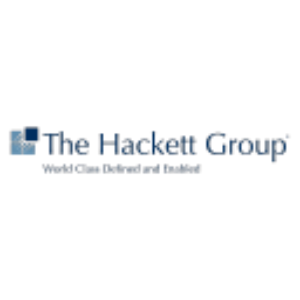Hackett: 2023 HR Key Issues Research Finds Troubling Disconnect Between Critical Priorities and the Ability to Execute Improvements
The Hackett Group's new HR Key Issues research highlights a disconnect between HR priorities and their ability to implement improvements for 2023. Key findings show that while developing effective executives is the top priority, less than 40% of HR organizations have initiatives to support this. Additionally, HR faces a 10.5% expected increase in workload with minimal staffing and budget growth, and a slowdown in HR tech spending from 9.1% to 1.8%. Less than 20% of organizations utilize advanced analytics effectively, indicating a lack of strategic workforce planning capabilities. The research emphasizes the need for HR to align priorities with investments.
- Top HR priority for 2023 is developing effective executives.
- Focus on recruiting, retention, and enabling growth remains strong.
- Less than 40% of HR organizations have major initiatives for developing executives.
- Only 23% have planned initiatives to act as strategic advisors to the business.
- HR workload expected to increase by 10.5% with minimal budget growth.
- Growth in HR tech spending is expected to slow to only 1.8%.
Six of the 10 top HR priorities represent business and enterprise goals related to human capital, indicating that HR remains focused on its role in enabling the success of the overall enterprise. But HR executives do not consider any of the top 10 priorities to be well supported or sufficiently funded,
The research revealed that developing executives who can lead effectively in a changing business environment is the top priority for HR in 2023. Recruiting and retention and enabling growth both remain high priorities for 2023, while acting as a strategic advisor and creating/maintaining a high-performing culture fill out the list of top five priorities.
In addition, HR leaders face increasing productivity and efficiency gaps, with workload expected to increase by
While improving insight is key to an HR organization’s ability to anticipate shifts in demand, supply of skills, and changes in the labor market, the research found that most lack effective strategic workforce planning capabilities. Small-scale deployments of advanced analytics, data visualization and master data management are the norm, with less than
A complimentary version of The Hackett Group’s 2023 CHRO Agenda research is available, with registration, at http://go.poweredbyhackett.com/23hrkey2301sm.
“Clearly, HR is recognizing the pressing need to equip managers to guide their organizations through today’s challenging business environment. This is why leadership has been elevated to the top priority for 2023, up from the seventh spot last year,” said Senior Research Director
“Another area of concern is the No. 3 priority – acting as a strategic advisor to the business,” DiRomualdo continued. “With so many people-related issues affecting business success, this is critical. But only
According to Associate Principal
“But there are concerning signs of a real disconnect between stated priorities, investments and confidence in their ability to deliver. At the same time, workload is increasing significantly, with little to no increases in staffing and budgets, and a significant reduction in the growth rate of spending on HR technology,” said Girimonte. “So HR operations are going to have to focus on cost reduction and improving efficiency as well, which will make it more challenging to effectively transform the HR organization, improve talent management, and leverage data and advanced analytics to produce insights. If these gaps and disconnects continue, HR organizations are likely to fall behind, and when the next crisis hits, it will be even more of a struggle to keep up.”
The Hackett Group’s 2023 Key Issues research series is based on results gathered from more than 350 executives in finance, procurement, supply chain, HR, information technology, and global business services at a global set of midsized and large enterprises.
About
Drawing upon our unparalleled intellectual property from more than 25,000 benchmark studies and our Hackett-Certified® best practices repository from the world’s leading businesses – including
More information on
Cautionary Statement Regarding “Forward-Looking” Statements
This release contains “forward-looking” statements within the meaning of Section 27A of the Securities Act of 1933 as amended and Section 21E of the Securities Exchange Act of 1934, as amended. Statements including without limitation, words such as “expects,” “anticipates,” “intends,” “plans,” “believes,” seeks,” “estimates,” or other similar phrases or variations of such words or similar expressions indicating, present or future anticipated or expected occurrences or outcomes are intended to identify such forward-looking statements. Forward-looking statements are not statements of historical fact and involve known and unknown risks, uncertainties and other factors that may cause the Company’s actual results, performance or achievements to be materially different from the results, performance or achievements expressed or implied by the forward-looking statements. Factors that may impact such forward-looking statements include without limitation, the ability of
View source version on businesswire.com: https://www.businesswire.com/news/home/20230323005108/en/
Source:
FAQ
What are the top HR priorities for 2023 according to The Hackett Group?
How much is the expected increase in HR workload for 2023?
What is the forecasted growth rate of HR technology spending?
What percentage of HR organizations have initiatives to develop executives?







